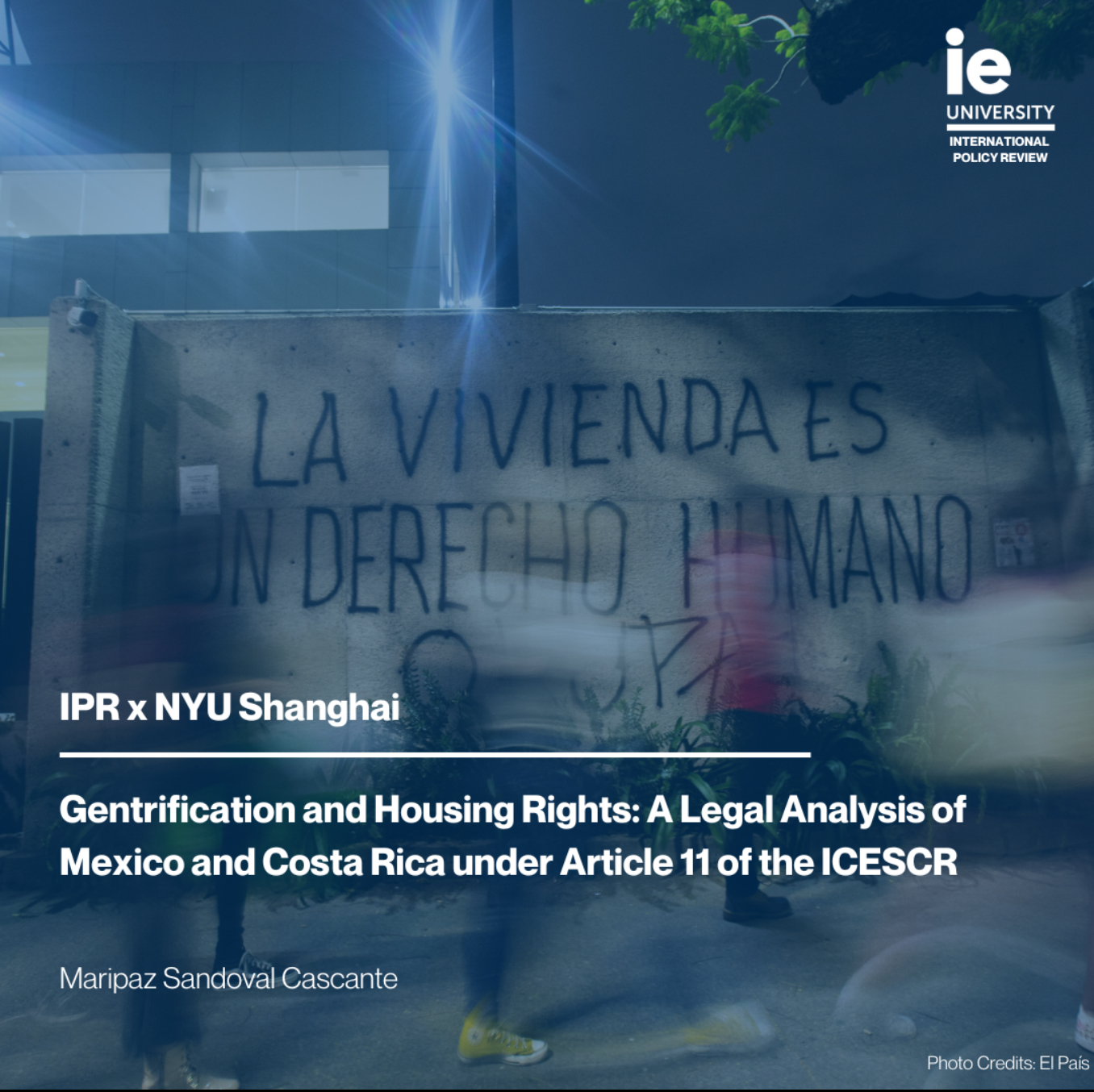
01 Jul Gentrification and Housing Rights: A Legal Analysis of Mexico and Costa Rica under Article 11 of the ICESCR
Maripaz Sandoval Cascante
Law and Policy Society at NYU Shanghai
Bachelor in Social Sciences (International Relations) and Interactive Media and Business
Email: ms14569@nyu.edu
Abstract
This paper examines gentrification in the context of Mexico and Costa Rica, where there is an increase in foreign influence and tourism that has reshaped the urban, economic and social aspects of their communities. Although tourism can boost these economies by creating job opportunities and developing new infrastructure, such tourism schemes do not come without their own costs, as they can quickly develop into gentrification. Gentrification is defined as “a process in which formerly declining, under-resourced neighborhoods experience reinvestment and immigration of increasingly affluent new residents“ with notable affectations to locals and low-income communities. This comparative study examines public policy in both countries aimed at mitigating gentrification and assesses their alignment with international human rights law. Both nations ratified the International Covenant on Economic, Social and Cultural Rights (ICESCR), Article 11, that guarantees the right to adequate housing under General Assembly Resolution 2200A (XXI) of 1996. While Mexico has introduced public policies to regulate housing prices, the Costa Rican economy highly depends on foreign direct investment (FDI) and tourism, making it complicated to counteract gentrification despite the commitments with the ICESCR. This study analyzes the comparison of legal frameworks and government interventions, evaluating whether Costa Rica and Mexico effectively uphold their international commitments to housing rights amid increasing gentrification pressures.
READ THE FULL ARTICLE HERE (Page 59-71)

Sorry, the comment form is closed at this time.